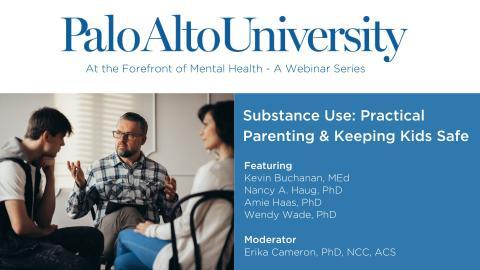
Substance Use: Practical Parenting & Keeping Kids Safe
Parents and guardians play an essential role in the health and safety of their children’s lives. As children mature to become adolescents and young adults, parents worry about new risks they may encounter. One such concern is the use of alcohol, cannabis, tobacco, and other drugs. Today’s hazardous substance landscape presents parents with new challenges in keeping their kids safe, especially as they become more independent in high school, college and the working world.
This expert panel of psychologists from Palo Alto University and the Principal of Los Gatos High School examined this new landscape, the common hazards that substances such as fentanyl and misused prescription drugs present, and practical approaches for parents to safeguard their kids from the harms of substance use. The program included resources and tips on how to talk with kids about prevention and harm reduction, what works and what doesn’t work.
Substance Use Prevention Resources
- Substance Abuse and Mental Health Services Administration (SAMHSA): SAMHSA National Helpline 1-800-662-HELP (4357)
- National Institute on Drug Abuse (NIDA): For Parents and Caregivers: Get information to help you talk with your teens about drugs and their effects, and learn where to go to get help. For Teens: Drug Use and the Brain - Get the latest on how drugs affect the brain and body, featuring videos, games, blog posts and more.
- Teen Link:Substance Use Prevention for teens - If a teen has questions or concerns about drug use, treatment, or recovery, they can call, chat, or text to talk directly with a with a licensed Substance Use Disorder Professional.
- Partnership for Drug-Free Kids: National nonprofit committed to supporting the whole family as they address every aspect of substance use and addiction, from prevention to recovery.
- National Association of Children of Addiction
- National Institute on Alcohol Abuse and Alcoholism (NIAAA): See section – Make a Difference: Talk to Your Child about Alcohol-Parents
- Straight Talk from Claudia Black: What Recovering Parents Should Tell Their Kids about Drugs and Alcohol: Book available on Am
Practical Tips for Keeping Kids Safe
- Build a supportive family environment through open conversations, family meals and displays of warmth and affection.
- Reduce family conflict and improve relationships with children through shared activities such as sports, movies, crafts, and holiday rituals.
- Consider family therapy with a professional counselor or psychologist if conflict in the home is ongoing.
- Become educated about the new ways kids use substances (e.g., “stealth” vapes) and tell-tale signs they are using (e.g., pictures on social media, etc.)
- Schedule one-on-one time with each child at least once a month to check in, connect and problem solve.
- Talk to children honestly about any history of alcohol problems and/or addiction in the family tree.
- Explain the brain science that delaying alcohol and substance use until adulthood could greatly reduce the possibility of developing substance use problems and addiction.
- Be a savvy parent and “think like your teen.” Use the internet and media to identify new ways kids are using or obtaining substances so you can be proactive.
The Moderator
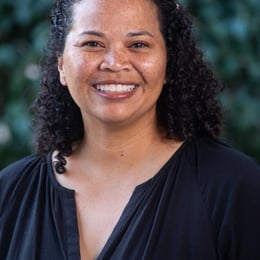
Erika Cameron, PhD, NCC, ACS
Erika Cameron, PhD, NCC, ACS is the Provost and Vice President of Academic and Student Success at Palo Alto University.
The Panelists
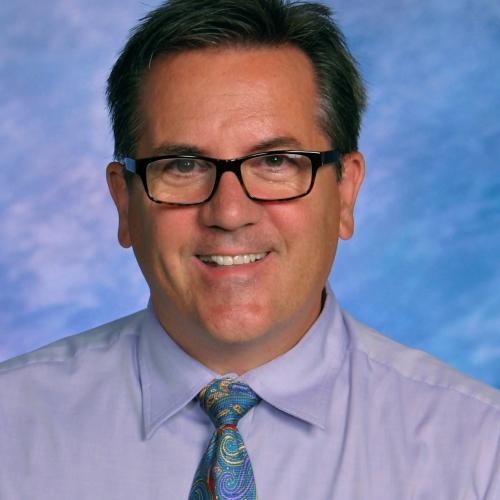
Kevin Buchanan, MEd
Kevin Buchanan, MEd has been the principal for Los Gatos High School since 2021.
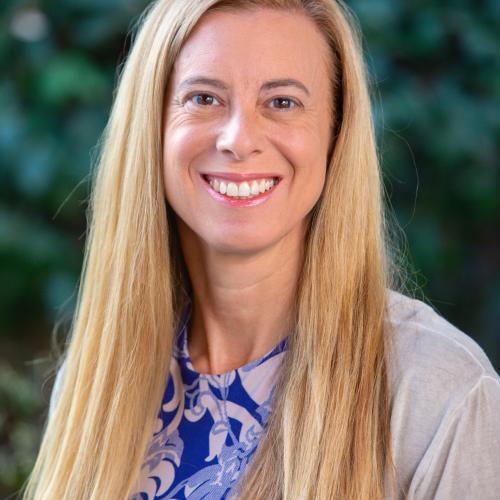
Nancy A. Haug, PhD
Nancy A. Haug, PhD, is a licensed psychologist and professor of psychology at Palo Alto University where she leads the Harm Reduction and Addiction Treatment Laboratory.
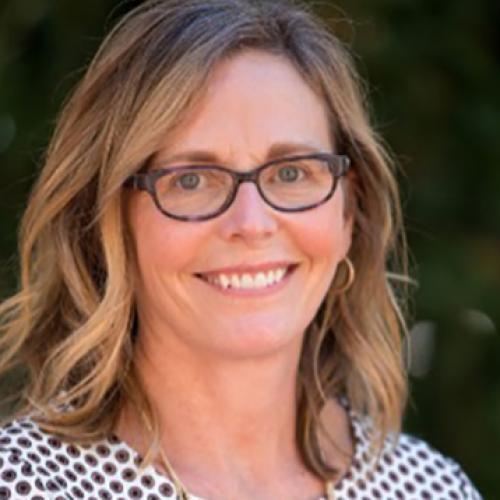
Amie Haas, PhD
Amie Haas, PhD, is a professor of psychology at Palo Alto University (PAU) with a specialization in college student substance abuse issues.
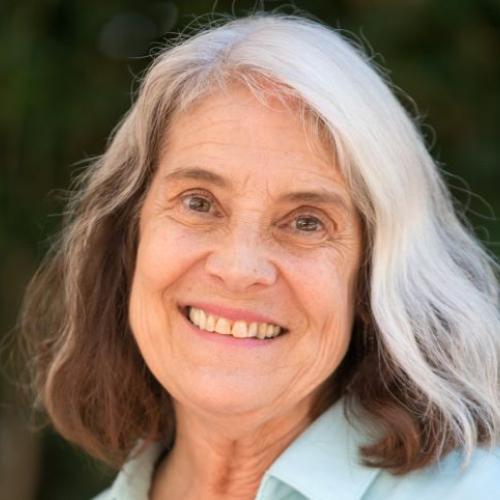
Wendy Wade, PhD
Wendy Wade, PhD, is an assistant professor of counseling at Palo Alto University and a licensed clinical psychologist with a specialization in addiction and its effects on families.
This discussion is part of PAU’s At the Forefront of Mental Health webinar series. The series is intended for the general public, mental health professionals, clinicians-in-training and others interested in the field of psychology and counseling. They are free, streamed live and include opportunities for audience members to pose questions. Each webinar is premiered on PAU’s YouTube channel.




